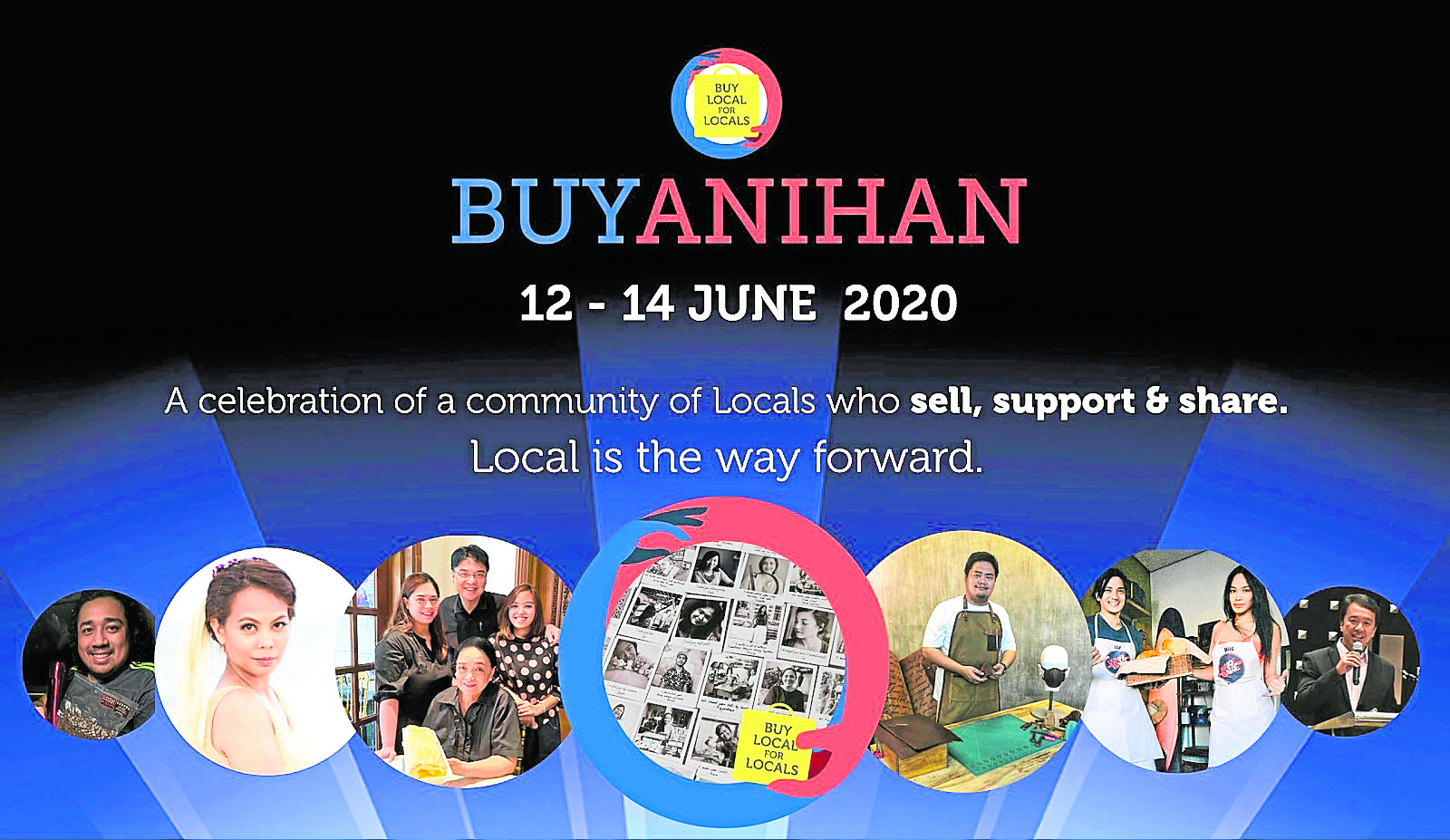
These days, when revenue streams have been plugged by quarantine measures and consumers have become more careful with their money, buying from local micro, small and medium enterprises (MSMEs) has become an act of patriotism.
And among those enabling these purchases is the Department of Science and Technology (DOST), which over the past five years has been providing extra support to MSMEs through the oneSTore initiative: around 30 sales hubs strategically placed across the country, that were complemented by an e-commerce platform, oneSTore.ph.
When the new coronavirus disease (COVID-19) hit the country, and lockdown measures forced all oneSTore hubs to close, it was the website that took center stage, and continues to do so, the DOST says.

Platform
“We have instructions, especially amid this pandemic, to reinvigorate oneSTore.ph,” says DOST Regional Director Sancho Mabborang, who also sits as program manager of oneSTore.ph.
OneSTore.ph has, to date, generated almost P3 million in sales, with the 12,000 products available on the site. So far, Mabborang says the platform has 370 merchants, most of which have received DOST assistance; that number, though, is expected to go higher, as the DOST conducts trainings on e-commerce among MSMEs in the country.
The long game for oneSTore.ph, however, says Science and Technology Secretary Fortunato dela Peña, is for the e-commerce portal to be run by private companies more adept at managing such a platform.
“We don’t intend to operate this forever, because I feel that this isn’t really our business. We just wanted to introduce our beneficiaries to this kind of marketplace,” Dela Peña says.
In the meantime, the DOST will be working overtime to make the platform more accessible to more Filipinos, to encourage people to buy local and boost the country’s COVID-19-hit economy. Dela Peña says they’ve also linked the website to another initiative, #PinasMunaTayo, which was started by the private sector and supported by the government, encouraging Filipinos to first shop, travel and dine in the country to help the nation get back on its feet.
Move forward
“E-commerce is really one way to move forward,” Mabborang says. “Those selling in Isabela are surprised to find customers in Mindanao, something they would not have been able to achieve by just selling offline.”
Businesses still skeptical of going online can learn from a Quezon province-based enterprise that used to resist e-commerce. Before COVID-19, Darlene’s Handcrafted Accessories (@darleneshandcraftedaccessories on Instagram) was focused on its over 30-year-old wholesale business, as supplier of anahaw fans, buri bags and other local products made in Lucban to retailers and malls.
But when everything came to a stop during lockdown, the family-run business finally gave in and went online.
“Before, I never believed in selling online, because I’ve never tried buying anything online,” says Joseph Ivan Villaverde, son of the business’ founder, Darlene. “All our orders got canceled or were put on hold, so that’s why we went online—and we were pleasantly surprised with the reception of our products.”
Aside from their usual items, Darlene’s now also sells face masks made from inabel fabric, as a response to customers’ needs. “By showing people that local products are well-made, we are helping promote them. Aside from that we are helping communities by providing jobs for the weavers,” Villaverde says.
Over on another social media site, Facebook, merchants are connecting to consumers while boosting Filipino patriotism through a new group: Buy Local For Locals. The community was established on May 23 by Patrick Michael Balo, Alexa Porto-Balo and Lala de Leon, who are also small business owners.
“It came about as an idea we had that morning when we were discussing how badly hit the microentrepreneur category was by COVID-19,” Porto-Balo says. “We knew intimately what the challenges were for small businesses.”
Starting anew
Aside from existing businesses, Buy Local For Locals is also helping those starting anew after losing their employment or livelihood during lockdown.
“Over the last few months, we saw more and more people going online, learning new skills, and selling homemade or handcrafted items to create a source of income. We also saw many people resorting to the internet to buy the things they need because of the restrictions of the quarantine. Buy Local For Locals helps in connecting these people,” Porto-Balo says.
One of many such sellers is Isabel Pangilinan, who used to run a food kiosk inside the University of the Philippines-Diliman in Quezon City. When she had to shut that business down because of the lockdown, Pangilinan turned to crocheting, thanks to another Facebook group, Earsavers for Lifesavers. Through the group, front-liners would request ear savers (bands worn at the back of one’s head that can be attached to face masks’ ear loops, in order to prevent chafing behind the ears), and crafters would fill in that request.
“At first, I made my own ear savers to donate. Then I thought of asking my four employees if they knew how to crochet. Two of them did, and the two had relatives and neighbors who knew the craft. So I got donors for materials and sponsors to ‘buy’ the ear savers, which I then donated to medical front-liners. This gave [our crocheters] a little income,” she says.
Full-time enterprise
This venture soon became a full-time enterprise for Pangilinan (she has ended the lease for her food stall), which she has named Proyekto Gantsilyo. Working with her are 14 crocheters, who are either relatives of UP employees or relatives of food stall employees or operators.
Just in time for Independence Day, Proyekto Gantsilyo has recently released their first product: the Kalayaan Earsaver. This, and many more local products, will be featured in Buy Local For Locals’ first online event: Buyanihan.
During the event, which runs on June 12-14, Porto-Balo says merchants will be offering special promos throughout the weekend. At the very least, Buyanihan is a “timely reminder to everyone that supporting local is the way forward,” she says.
Another brand on the platform is Kaliwete Creatives, which sells items that feature the watercolor artwork of its owner, Natz Mendoza-Montes.
Montes, who started out selling throw pillows with her printed watercolor creations online and in bazaars in 2016, says she is grateful for groups such as Buy Local For Locals, since the pandemic hit her enterprise hard. Pre-enhanced community quarantine, Kaliwete Creatives products were already being sold in the mall-based Hey Kessy crafts store in Quezon City.
“Prior the lockdown, I wanted to get more serious about planning for retail for 2020; the artist in me was pretty much just winging it or making decisions through gut-feel for so long,” Montes says. “Then the lockdown happened, malls closed, [and] COVID-19 just took over. I also design invitations, so a number of wedding invitation projects were put on hold, since clients had their big day postponed indefinitely.”
Now that lockdown has been lifted, Montes says groups like Buy Local for Locals have been instrumental in restarting her business. She is working on new painting collections, titled “Bloom Pinas” and “Wat-awat,” which Montes says celebrate the Filipino spirit of being resilient, creative and ever positive.
“As challenging as it may seem at times, I hope my art and paper goods line will renew our patriotism and reawaken our pride,” she adds.

